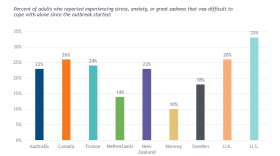The idea of a state-run program modeled on the New Deal-era Works Progress Administration that would create jobs for unemployed and underemployed residents to stimulate the economy is catching on in some quarters.
At the beginning of summer, 109th district New York State Assemblywoman Pat Fahy and fellow Democrat, Senator Rachel May of the 53rd district, borrowed a page from FDR's playbook, looking to create a Works Progress Administration. Fahy says it would be a short-term public jobs and works program to put unemployed New Yorkers back to work, specifically targeting...
"Low income, low wage workers, youth again, the millennials and younger, as well as people of color."
According to Fahy’s office, roughly $92 billion in today’s dollars was invested in infrastructure and cultural projects in the 1930s. At its peak, the WPA employed nearly 3 million people. Senator May says the impact is still felt today in parks, infrastructure, and art.
“If we have a new WPA it will employ people in the same way in meaningful jobs of lasting value. As in the 1930's we have to martial government resources to boost employment, and this bill can position us to do it strategically."
In July, Massachusetts State Senator Jamie Eldridge and Representative Dan Sena, also Democrats, filed an act to establish the Massachusetts Works Progress Administration Program with the same intent: to prioritize communities disproportionately affected by unemployment.
Fahy and May have now joined forces with their Massachusetts counterparts, hoping to boost popular support.
"We couldn't be more thrilled with this new partnership that we're hoping to grow quickly."
Eldridge says as a result of the pandemic, record-breaking numbers of Massachusetts and New York residents applied for unemployment insurance, driving unemployment rates up to record levels.
"Right now state legislators need to be bold. The next round of federal stimulus has not happened and you know we need to take leadership at the state level."
Sena says the Massachusetts WPA bill has four components.
"One of them would be to create jobs. The second would be to require skills are available for those individuals. The third would be continuing environmental and economic benefits from the project after it's finished. And the fourth it can be staffed with minimum delay."
Joe Kriesberg is President of the Massachusetts Association of Community Development Corporations.
"It's always a little bit of seeing the opportunity within the crisis. If the federal government comes to the rescue, that would be great, but we're gonna have to have both federal and state programs and initiatives."
Fahy envisions the New York WPA "as part of a multi-pronged solution to multi-pronged problems" including: the COVID economic upheaval, social unrest, and unemployment.
Fahy says the bill is in committee. Eldridge's office says the language of the Massachusetts version is being fine-tuned.






